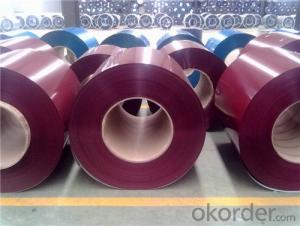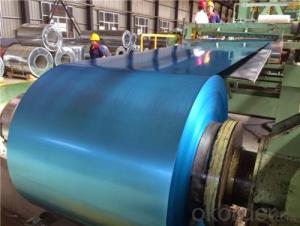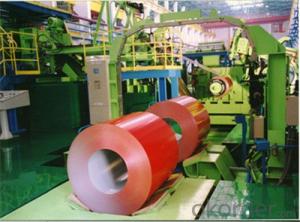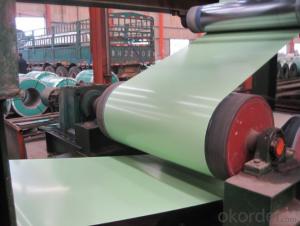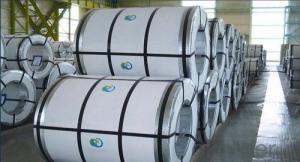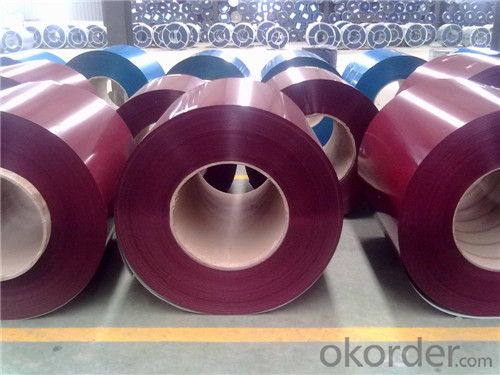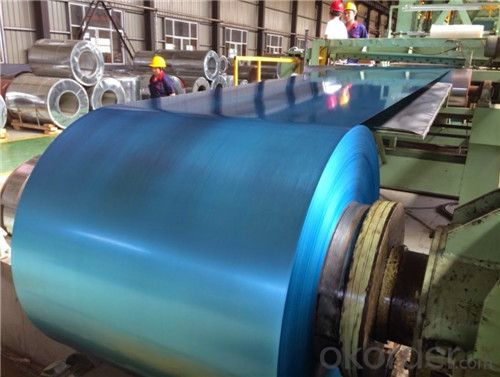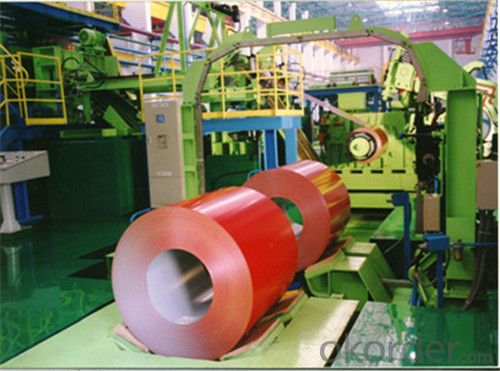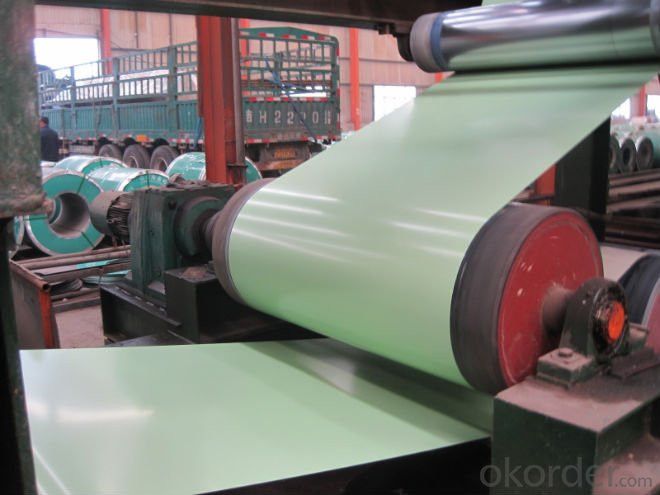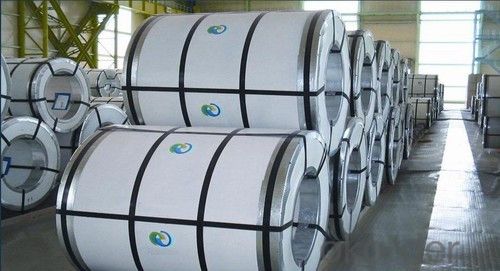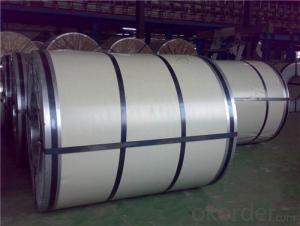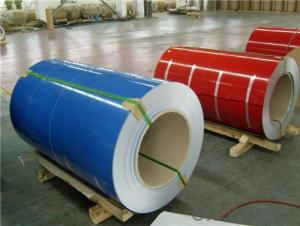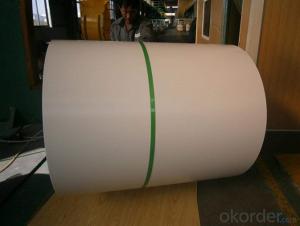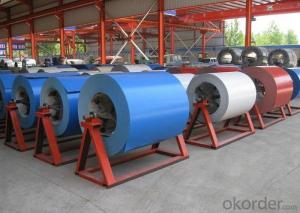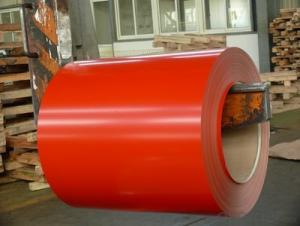BMT Z35 Rolled Prepainted Steel Coil for Construction
- Loading Port:
- Shanghai
- Payment Terms:
- TT or LC
- Min Order Qty:
- 50 m.t.
- Supply Capability:
- 30000 m.t./month
OKorder Service Pledge
OKorder Financial Service
You Might Also Like
BMT Prepainted Rolled Steel Coil is a kind of coated steel coil/sheet.
With the cold rolled steel of different strength and thickness as substrate, it is produced through applying Zn coating on both faces by hot dip process.
Its surface has bright silver color and regular embossed-like figure, which are highly decorative.
Specifications of BMT Z35 Rolled Prepainted Steel Coil for Construction
Product | BMT Prepainted Rolled Steel Coil for Construction |
Material Grade | SGCC / SGCH / DX51D+AZ, etc |
Thickness | 0.3-3.5mm |
Width | 600-1250mm |
Tolerance | Thickness: +/-0.02mm , Width:+/-2mm |
Zinc-coating | Z35-150g/m2 |
Technique | Raw material: Hot rolled steel coil > Cold rolled>hot dipped galvalume |
Surface | Dried, Chromated, Unoiled |
Spangle | Regular spangle , small spangle, zero spangle |
ID | 508MM |
Coil weight | 25MT max |
Export package | Cardboard inner sleeves, Waterproof paper, galvanized steel covered and steel strip packed |
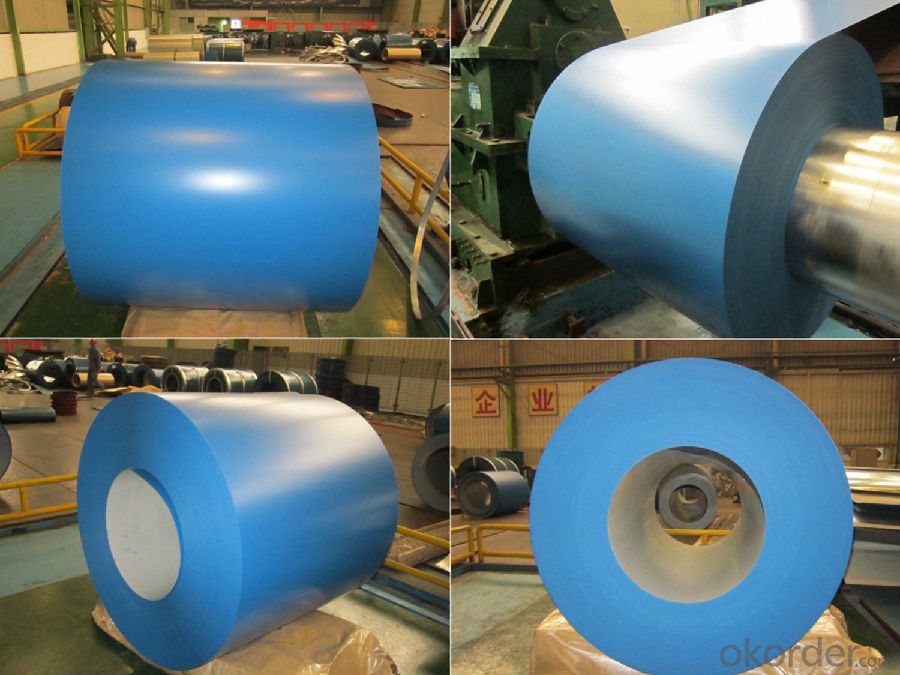
Structure of BMT Z35 Rolled Prepainted Steel Coil for Construction
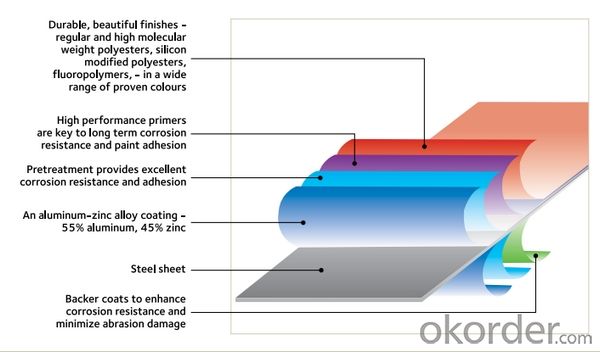
Main Feature of BMT Z35 Rolled Prepainted Steel Coil for Construction
1.Corrosion resistance: It mainly depends on the aluminum protection. When the zinc being worn, the aluminum will form a dense layer of aluminum oxide, resist corrosion material to prevent further corrosion inside.
2. Heat reflective: Galvanized steel plate heat-reflective high rate is twice as galvanized steel, often used to make insulation materials.
3. Economy: Because density of 55% AL-Zn is smaller than the density of Zn, so in the same weight and thickness of Galvanized zinc layer, aluminum-zinc steel plate is larger area more than 3% of galvanized steel sheet.
Applications of BMT Z35 Rolled Prepainted Steel Coil for Construction
1. Construction and building: roofing; ventilating duct; handrail; partition panel
2. Electric appliance: refrigerator; washing machine; refrigerator..
3. Transportation: oil tank; gas tank; road sign; etc.
4. Agriculture:barn; etc.
5. Others: vending machine; game machine; etc.
- Q: also what are the factors of location of these steel plants
- A lot of iron ore is available in the upper great lakes region. Iron ore needs to be transported on large freighters, and the Great lakes served a purpose for that transit system as well. I cant say much about Birmingham, but as for Detroit and Pittsburgh, the steel forming industry has been greatly affected by the low cost Asian imports now available. I think what happened was this: The US used to subsidize the US steel industry, this kept prices artificially high ( compared to the world market ), but also kept the plants open. Sometime during the present Bush administration, the US stopped subsidizing the steel industry, and the Asian steel manufacturers started dumping steel here in the US at very low prices, this caused the US company's to stop or greatly lower their production, and many US steel plants went out of business. Now with the US steel companies out of the way, the Asian steel companies have steadily raised their prices on the US steel buyer. Hows that for fair trade, the steel industry isn't the only thing this has happened to either. I know this was a bit of a rant, but I wanted to point out how a once proud steel industry was put to death by politics.
- Q: Can steel coils be coated with organic materials?
- Yes, steel coils can be coated with organic materials. Organic coatings such as paints or varnishes can be applied to steel coils to provide protection against corrosion, improve aesthetics, or add other desired properties.
- Q: How do steel coils contribute to the energy infrastructure sector?
- The energy infrastructure sector heavily relies on steel coils, which are essential for constructing and maintaining various energy-related structures and equipment. To begin, steel coils are extensively employed in manufacturing pipelines, the lifelines of the energy industry. These pipelines transport oil, natural gas, and other energy resources across long distances, guaranteeing a consistent supply to power plants and other energy facilities. The use of steel coils in producing seamless and welded pipes ensures high strength, durability, and resistance to corrosion, making them well-suited for handling the challenging conditions of energy transportation. Apart from pipelines, steel coils are also used in the production of storage tanks for oil, natural gas, and other fuels. These tanks play a crucial role in storing large quantities of energy resources, ensuring an uninterrupted supply even during periods of high demand. By utilizing steel coils to fabricate the tank shells, the necessary strength and structural integrity are achieved, enabling them to withstand the pressure and environmental factors associated with energy storage. Moreover, steel coils play a vital role in the construction of power plants and other energy infrastructure facilities. They are utilized in manufacturing structural components like beams, columns, and supports, which provide the foundation and stability required for the safe operation of these facilities. Additionally, steel coils contribute to the production of equipment such as turbines, generators, and transformers, which are essential for converting energy into usable forms and distributing it to end-users. Furthermore, steel coils are employed in the construction of transmission towers and electrical grids. These structures and networks are responsible for transmitting electricity from power plants to residential, commercial, and industrial consumers. By using steel coils to manufacture the towers and poles that support high-voltage transmission lines, their stability and reliability in transmitting electricity over long distances are ensured. In conclusion, steel coils are irreplaceable in the energy infrastructure sector, providing the necessary materials for constructing, maintaining, and operating pipelines, storage tanks, power plants, transmission towers, and electrical grids. Their strength, durability, and resistance to corrosion make them the ideal choice for withstanding the demanding conditions of the energy industry, thereby ensuring a reliable and efficient energy supply to meet the growing needs of society.
- Q: How are steel coils cut and shaped for specific requirements?
- Steel coils are cut and shaped for specific requirements through a process called slitting and forming. Slitting involves cutting the coil into narrower strips using specialized machinery, while forming utilizes presses, rollers, or other tools to shape the steel into desired profiles. These processes allow manufacturers to tailor the dimensions and shape of the steel coils to meet specific industry and customer requirements.
- Q: What are the different types of coil slitting machines?
- In the market, one can find various coil slitting machines, each designed to meet specific requirements and preferences. Some commonly used types are as follows: 1. Rotary shear slitters: These machines employ rotary knives mounted on a rotating drum to slice the coil into narrow strips. They are perfect for high-speed operations and can handle large quantities of material. 2. Loop slitters: Loop slitting machines pass the coil through a loop to maintain tension and prevent material damage during the slitting process. They are suitable for delicate materials or those prone to deformation. 3. Turret slitters: Turret slitting machines have multiple sets of slitting knives mounted on a rotating turret. This enables quick and easy switching between various slitting configurations, reducing downtime and increasing productivity. 4. Drag slitters: Drag slitting machines utilize a stationary knife and a moving clamp to hold and pull the coil through the cutting process. They are versatile and can handle a wide range of materials, including thick or heavy coils. 5. Crush slitters: Crush slitting machines employ a set of opposing rollers to crush and cut the coil material. They are commonly used for softer materials or those that are challenging to cut with traditional knives. 6. Laser slitters: Laser slitting machines make use of a high-powered laser beam to precisely cut through the coil material. They offer unparalleled accuracy and are suitable for high-end applications or materials with complex shapes. Each type of coil slitting machine has its own advantages and limitations. The choice of machine depends on factors such as the type of material, required speed, desired accuracy, and production volume.
- Q: How are steel coils processed before they are used in manufacturing?
- Steel coils are processed before they are used in manufacturing through a series of steps including cleaning, pickling, cold rolling, annealing, and coating. These processes remove impurities, improve surface quality, reduce thickness, enhance mechanical properties, and provide corrosion resistance to ensure that the steel coils meet the required specifications for various manufacturing applications.
- Q: What are the dimensions of steel coils used in the metalworking tool industry?
- The metalworking tool industry has a wide range of dimensions for steel coils, which can vary depending on the specific application and requirements of the tool. However, there are certain dimensions that are commonly observed in this industry. Steel coils used in metalworking tools typically come in different widths, ranging from 24 inches to 72 inches. The thickness of the coils can also vary, with common thicknesses ranging from 0.020 inches to 0.250 inches. Moreover, the length of the coils can vary significantly, with standard lengths usually falling between 100 feet and 2000 feet or even more. These dimensions are selected based on several factors, such as the type of metal being worked, the specific tool being used, and the desired outcome of the metalworking process. Additionally, other factors like the weight and handling capabilities of the tool, as well as the efficiency of the manufacturing process, may also influence the dimensions of the steel coils used. To ensure the appropriate dimensions for steel coils in the metalworking tool industry, it is essential to consult with manufacturers, suppliers, or industry experts. This is crucial because these dimensions can vary based on specific needs and preferences.
- Q: How are steel coils straightened?
- Steel coils are straightened using a process called leveling. This involves passing the coils through a series of rollers that gradually flatten and align the steel, resulting in straightened coils.
- Q: I completed the missions in broken steel like: the one of the rangers, the one of vault 101, the one of the enclave, and several others.are there any more INTERESTING missions?
- one good mission is stealing independence given in rivet city
- Q: What is the average lead time for receiving replacement steel coils?
- The average lead time for receiving replacement steel coils can vary depending on various factors such as the supplier, location, and specific requirements. It is recommended to contact the supplier directly for an accurate estimation of the lead time.
Send your message to us
BMT Z35 Rolled Prepainted Steel Coil for Construction
- Loading Port:
- Shanghai
- Payment Terms:
- TT or LC
- Min Order Qty:
- 50 m.t.
- Supply Capability:
- 30000 m.t./month
OKorder Service Pledge
OKorder Financial Service
Similar products
Hot products
Hot Searches
Related keywords
